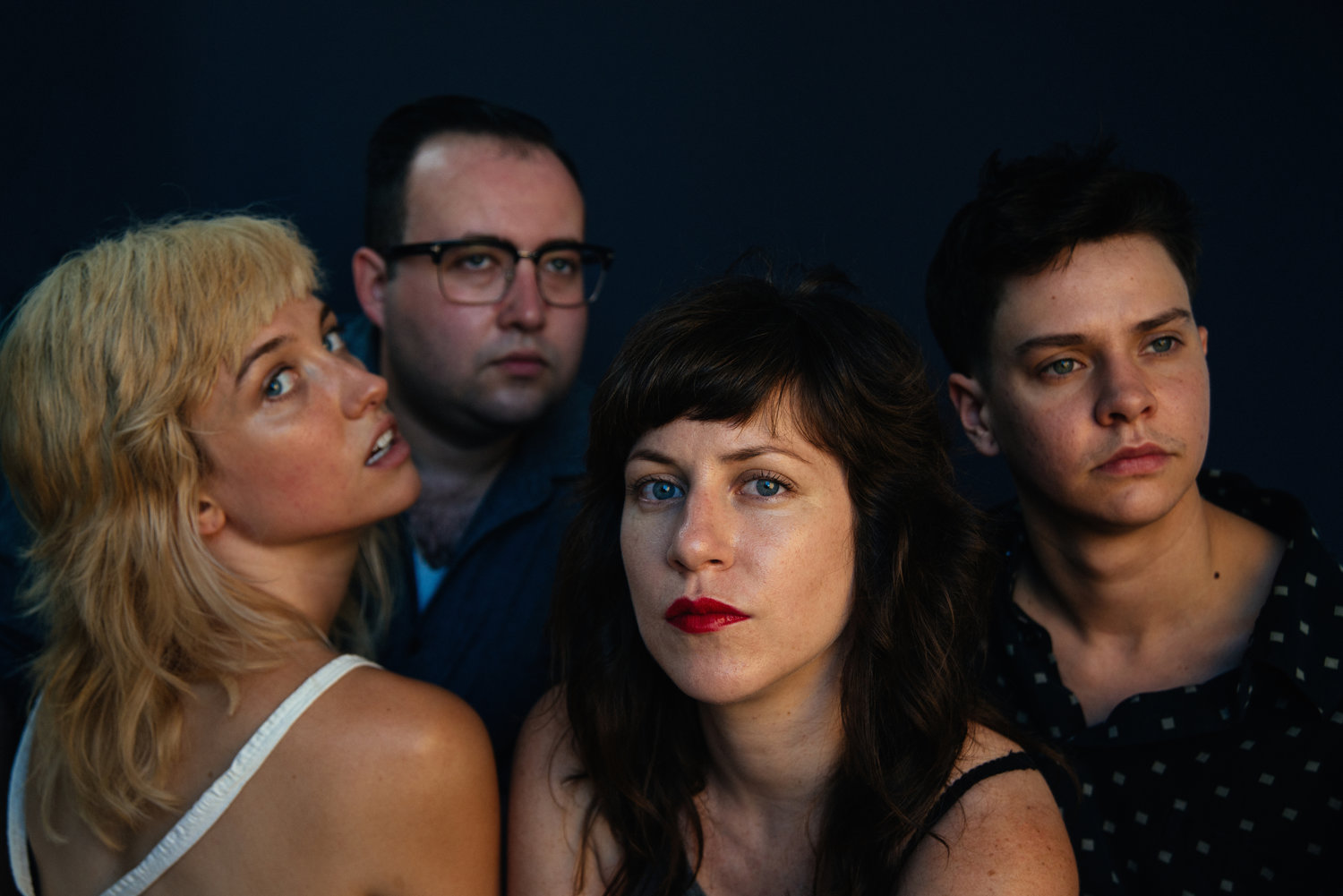Atwood Magazine’s writers discuss Japanese Breakfast’s fourth album, ‘For Melancholy Brunettes (& sad women),’ an adventurous dive into mythos and a beautiful examination of identity, grief, and girlhood.
Featured here are Atwood writers Adam Davidson, Hannah Burns, Josh Weiner, Kylie Gurewitz, and Marc Maleri!

— —
To start, what is your relationship with Japanese Breakfast’s music?
Josh Weiner: I’m a casual fan. I got to see them perform twice (lucky me!) in a two-month span back in 2022 – first at Boston Calling, and then at Lollapalooza. That dual experience inspired me to go check out their album Jubilee and I enjoyed it, most of all the single “Be Sweet.” Thus, I am open-minded about checking out their follow-up effort, For Melancholy Brunettes (& sad women).
Kylie Gurewitz: Casual Japanese Breakfast enjoyer here. I only knew “Boyish” and “Road Head” before Jubilee. I got pretty into Jubilee around 2022, especially “Paprika” and “Slide Tackle.” I read the first quarter of ‘Crying in H Mart’ before I had to return it to the library, but after this record I will definitely finish it. Hoping to see them live this album cycle.
Adam Davidson: I first heard them upon release of Jubilee – It came highly recommended, a must-listen from several sources, so I put it on my listening list and was instantly impressed. Jubilee ended up being one of my favourite albums of 2021, a nice surprise from a group I had not heard of before. So when I saw they were putting out a new release I knew I had to listen to the follow up!
Marc Maleri: I’d say I’m moderately familiar with their discography, Jubilee being the record that I know the most. Countless times at serving jobs, I’d hear songs playing from that record. Their music brings back some fun albeit stressful memories, so I’m happy to hear this new record. I think Michelle Zauner’s voice has always been something that intrigued me most about Japanese Breakfast, especially on this project that allows it to shine a little bit more in stripped back moments.
Hannah Burns: I found Japanese Breakfast in high school, obsessively playing “Boyish” and “Road Head” from Soft Sounds. I didn’t go back and listen to Psychopomp until I read Zauner’s memoir. It was such a bittersweet introduction to the record, and I loved every song. I saw one of the final shows of the Jubilee tour last year at Radio City. She was captivating, one of the best concerts I’ve been to in the city.
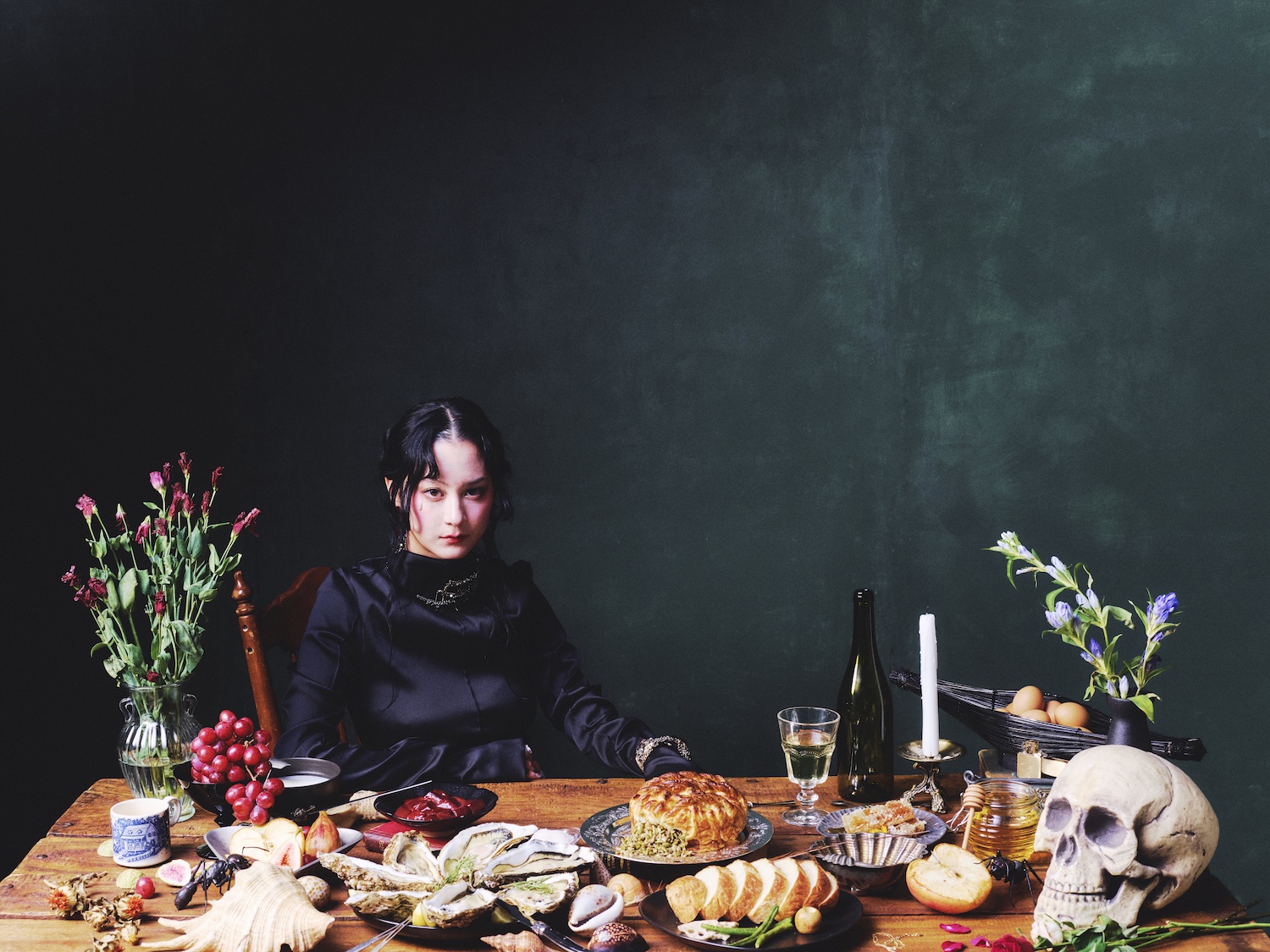
What are your initial impressions and reactions to For Melancholy Brunettes (& sad women)?

Kylie: My initial impression was that this was such a pretty record. Sonically really beautiful and somehow both atmospheric and stripped back.
Adam: It’s definitely a development on Jubilee. Not an evolution as such, but they are four years down the road, and they’ve clearly been working on their craft a lot. I find it easy to put on and daydream to, which usually means it’s something good. There’s a big wave of female-fronted bands right now, whether in pop, garage rock, metal, or whatever-the-hell you want to categorise Japanese Breakfast as, and as such the band are riding the crest of a very popular wave.
It’s the most wonderfully compact record. I don’t say this often about albums, but it could have been a couple of tracks longer for sure. I can’t believe how much is packed into the 30 minutes run time, but at the same time how delicate the arrangements are. Often I’ve been listening to For Melancholy Brunettes… and it only feels like a few minutes before Jeff Bridges pops up – But then I know it’s nearly over because he’s on the 8th track!
Marc: It’s succinct. I absolutely love a short and tighter record with a consistent vibe throughout, and Japanese Breakfast did exactly that with this piece. What’s even more shocking are the number of mythological references and themes explored on the 32 minute album, from allusions to Venus to more direct influences on tracks like “Leda.” After my first listen, what struck me the most was how different this album is sonically compared to their last project. I adore the overall more stripped back, acoustic, ethereal vibe that Japanese Breakfast went for on this one.
Hannah: It is fantastic, and not in the banal sense of the word. It has a dreamy quality, immersing the listener into the realm of melancholy she is writing from with a lovely, romantic lens. Crisp is another word that comes to mind, with the brevity of the record and with the changing of the season I am coming to associate with it.
Josh: I just listened to it this morning as I was driving to the school where I work – my commute is roughly half an hour, and so is this album, which makes it the perfect length for such a journey. I will echo the positive praise that my Atwood colleagues have already dished out, as this is an enchanting and immediately likable record. I’m glad it made a positive first impression to me, and I look forward to dissecting it further on repeat listens.
How does this album compare to 2021’s Jubilee – what are the most striking similarities or differences?

Kylie: This one feels more stripped back and introspective to me. Jubilee felt like more of a departure from the classic indie-band sound, more upbeat with some danceable tracks. For Melancholy Brunettes features a lot more acoustic instruments and gentler arrangements. Thematically, they’re total opposites, which is right there on the album covers, with Jubilee featuring the bright yellow persimmons and For Melancholy Brunettes featuring moody shades of navy and a woman too depressed to eat the spread in front of her.
Adam: I’d say Jubilee is primarily vocal-based, and the product of a band organically jamming. It’s direct, more like a classic hook-based pop record. Be Sweet, for example, is cut straight from the ’80s, a song reminiscent of Fleetwood Mac. Whereas For Melancholy Brunettes… is denser, it has less open spaces and employs a larger folk influence. The band are developing, and covering new ground – they are more textural on this record, and they often do away with traditional song structure.
Listening back to Jubilee for this write-up, I was also struck by the cleaner production – Again it sounds organic, like they’re in the room with you. Every instrument has its own spot. Meanwhile, For Melancholy Brunettes… has more overdubs, more going on, more melodies built on one another. It’s a busier sound.
Marc: Jubilee is brighter and feels more comfortable characterized as an alternative pop record. This new project feels like watching a dimly lit room slowly retreat into a comforting night. I think the biggest differences, on a first listen, are the distinctions in production between the two records. Some of the tracks off of Jubilee pull sounds from the ’80s and had more of a dancy vibe to them, whereas For Melancholy Brunettes (& sad women) undoubtedly feels more folksy and acoustic. Zauner’s lyrics remain introspective, but the countless references and nuances within the lyricism are able to shine more thanks to production that isn’t as busy as previous releases.
Hannah: It feels like a natural counterpart to Jubilee, not too sharp a contrast between the beauty Zauner finds in joy and the beauty she finds in melancholy. In some ways it feels like a companion to Jubilee. Not quite a sister album, but a sequel or prequel, depending on which way your mood is swinging.
Josh: I haven’t listened to Jubilee all the way through in a while, but I remember that it was a breezy and lighthearted listen. You might think that would put it in contrast with an album named For Melancholy Brunettes (& sad women), but I actually found this new album to be considerably more bright-spirited than its title would have you believe. Fundamentally, I’ll say that these two albums share the effect of putting their listeners in a good mood, even if not all of these 10 new songs have the same smile-inducing effects as “Be Sweet” did. I’ll have to (re)familiarize myself with both records in order to get deeper into what sort of profound thematic overlap they might share and all.
Japanese Breakfast teased For Melancholy Brunettes… with “Orlando in Love” and “Mega Circuit.” Are these singles faithful representations of the album?

Adam: In a way – Yes, absolutely. Because those are pretty much the best (in my opinion) songs on the record. But in another way they aren’t, because they are not typical of the overall sound of the album. Most of the songs are quieter, and sparse, with lighter percussion. If you want to label an album as diverse as this, I’d say it’s overarching genres are indie-folk and alternative pop, which covers a lot of the record’s scope. But of course there’s much more going on, so it’d be hard to pick out any one song as fully representative. For Melancholy Brunettes… is something that needs to be listened to front to back. And you should, because it’s not that long!
Marc: I think “Orlando in Love” is much more representative than “Mega Circuit.” “Orlando in Love” is brimming with call-outs to literary works such as Orlando Innamorato, an epic poem from the Italian Renaissance, along with other references to myths that other tracks on the record mirror. Sonically, “Orlando in Love” also embodies this floaty and gentle feeling the most of the tracks have as well. While “Mega Circuit” isn’t a poor representation (has a somewhat similar sounds & themes to tracks like “Picture Window” & “Honey Water”), I feel “Orlando in Love” is the more obvious representative as a whole.
Josh: Sure, they’re representative of the general sounds and scope that the rest of the album achieves. They may not be clone copies of the other eight songs here, but I wouldn’t want them to be, either – it would make for a pretty monotonous record if that were the case. The two singles are a worthy introduction to Japanese Breakfast’s latest work.
For Melancholy Brunettes… has been billed as an album that “examines the darker waves that roil within.” Does this capture the spirit of these songs, and where do you hear or feel it most?

Adam: I like this, because my first impressions were not of dark lyrics – But when you’re a few listens in, those themes do come out. The music is an interesting cover for the words, because it’s so gentle and melodic. For Melancholy Brunettes… is firmly rooted in the sounds of spring to me, and was fittingly therefore released in March. So it took a little while for those more challenging lyrical themes to settle for me. But like a lot of other music in this genre, subtlety is at the core of Japanese Breakfast’s conceptual world, and some of the nuances pass you by 4, 5, 6 times.
There’s a lot about loss on this album, which makes sense when you know about the personal turmoil Michelle Zauner has been through the last few years. That’s deftly expressed on “Orlando in Love,” as Zauner uses some deep cultural allegories to come to terms with her grief. I think though, it’s also a very hopeful album, about being in a sad place but seeing the beauty in what you’ve got – Perhaps a supportive partner or a bright summer’s day – And the potential in where you’re going.
Marc: Without a doubt. There are certainly moments throughout the album that don’t necessarily feel “dark,” but the introspective level of the lyricism, even on tracks that sound happy and light (ex: Little Girl), allow for some impactfully somber moments. I think the track where I feel this sense of darkness the most is on “Honey Water.” The aggressive guitar coupled with Zauner’s palpable frustration and surrender to men’s shortcomings was fantastic. The latter half of the song with the overdrawn, echoing instrumentals almost felt like I was listening to an Ethel Cain song, and I think that certainly speaks to the darkness that’s living within this record.
Josh: I agree with the others that the album doesn’t necessarily feel all that dark and gloomy at first, but once you unpack the lyrics, some of the more somber themes emerge. An example of that is the song “Leda,” which, when you listen to it carefully (plus get a little assistance from Genius.com), turns out to be about a girl who is isolated from her father and has never been able to patch up her relationship with him.
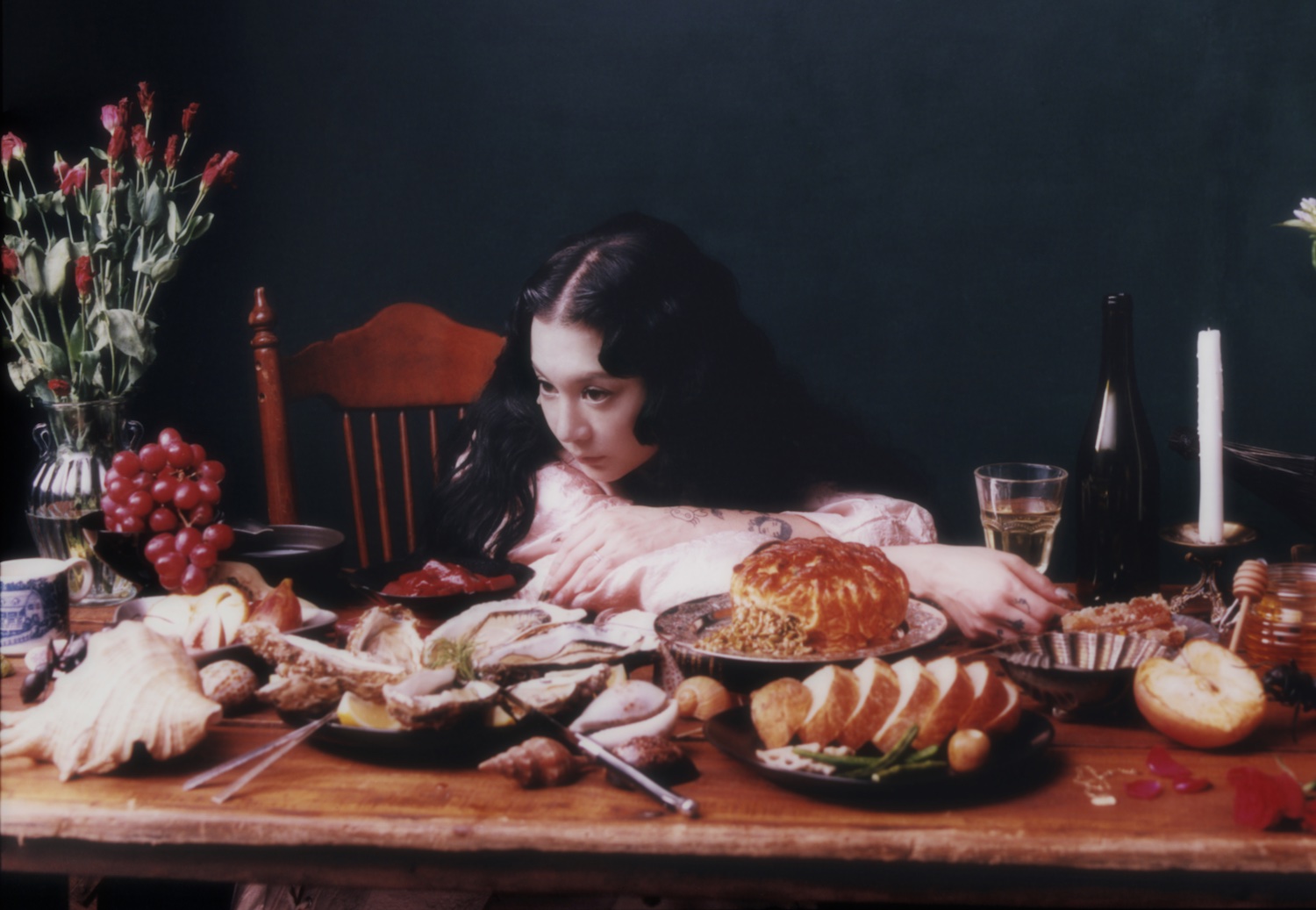
Michelle Zauner has also spoken at length about the difference between melancholy and sadness, to her: “I think of melancholy as a kind of anticipatory grief, one that comes from an acknowledgment of the passage of time, from the recognition of mortality and finitude. In some way, too, I think it marks the artist’s condition, constantly observing through that lens.” What do you think of her assessment?

Adam: That’s so succinctly poetic. “Anticipatory grief.” “Mortality and finitude.” What a beautiful way with words. I’ve always seen melancholy as something else myself, perhaps best described as a happy sadness; the ultimate ambivalence. I don’t think you can argue though with what she’s saying here. I do think melancholy is a core part of any given artist’s day-to-day, I do think it’s about mortality, whether fully cognised at the time or not. It’s about being present with your happiness, but being sad at the same time as you know it won’t last. I can tell Zauner and the band have attempted to capture that feeling throughout their career.
Marc: What a terrific way of characterizing the perspective of artists at large. I couldn’t agree more with Zauner’s examination of melancholy, especially in the context of art-making. Whether it be a song, a novel, a landscape painting, or whatever it may be, artists are certainly looking at their creations through the lens of “finitude” and how that ultimately makes the art more meaningful, tragic, transcendent, etc. This feeling of “anticipatory grief” is something that I sense across this record.
Hannah: Zauner is incredibly intelligent and her art, her lyricism above all, is a reflection of that. I love the idea that melancholy is anticipatory grief, that feels very true to my experience. I agree with her assessment that this melancholic lens is part of the artist’s condition, to witness and translate our humanity, always within the context of an impending end. Art is grasping at moments, scenes, fleeting feelings, to preserve within the slippery passage time. It can be a powerful act of agency to create art as a rebellion to our own mortality, to create something despite death, but I think it more often comes from a place of powerlessness. It is a desperate impulse to create, and so human. The album is run through with this anticipatory grief.
Josh: Interesting. I wouldn’t have initially thought that there’d be much of a difference between the terms “melancholy” and “grief,” and that they could be used interchangeably. But hey, if Michelle Zauner is willing to go to such great lengths to elaborate on the distinction in her work, and also use her personal definition of “melancholy” as the backbone to some of her songwriting, who am I to stand in her way?
Which song(s) stand out for you on the album, and why?

Adam: I’m really into that headswimming guitar wall on “Honey Water,” that hit me straight away. It’s nothing like the rest of the album and really stands out. It’s a huge indie rock sound that lingers. And the song, it’s about the complexities of a serious relationship, how things aren’t “happily-ever-after” and that there’s a lot of sadness involved, but she’s accepting of the sadness and grows into it. At the end of the song, Zauner repeatedly whispers “So it goes/I don’t mind” sounding euphoric and listless at the same time, again illustrating that ambivalence at the heart of her craft.
Marc: The two that I can’t stop listening to are “Honey Water” and “Picture Window.” “Honey Water” was a punk-adjacent track that I wasn’t really expecting, and the last half of the track with the booming guitar really packs a punch that I think this album needed. The lyrical content in “Honey Water” is stunning as well.
As for “Picture Window,” I think that track has some interesting elements of rock to it and there are some twang-country influences that I think add a ton of depth. The lyrics are the kind that I’ll revisit and derive new meaning from with each listen.
Hannah: The song that stuck out to me is “Men in Bars” with Jeff Bridges. When I first heard it, I was shocked by the twangy sound and by this random man’s voice. I enjoy the lyrics and the sound, but I don’t like Jeff Bridges in it. Maybe it will grow on me over time, but every time it comes on I fight the urge to skip it. “Picture Window,” however, has become my new favorite song from Japanese Breakfast.
Josh: I’ll have to give it a few more listens before I can decide which song or two are my favorites, but I do like all the ones everyone else has listed thus far. It’s a pretty gentle album for the most part, so the upbeat guitar playing on “Honey Water” helps to make that one a standout for me, for sure.
Do you have any favorite lyrics so far? Which lines stand out?

Kylie: A harsh lyric set against beautiful, gentle instrumentation always gets me. A few that really stood out to me were “Pissing in the corner of the hotel suite,” in “Little Girl,” and “plotting blood with your incel eunuchs” and “sucked you off by the AC units” in “Mega Circuit.” “Little Girl,” especially, is such a pretty song, with fingerpicking on nylon guitar strings and a heartbreaking string section in the chorus.
Adam: I find the first verse in Mega Circuit particularly striking – In a song about toxic masculinity, Zauner sets a typically manly scene – “Barreling ’round the mega circuit/Kicking mud off ATVs” then makes a sharp turn into the misogyny of the Manosphere – “Plotting blood with your incel eunuchs” before offering a hand in friendship to these troubled young men “I could be the home you need.” The way she covers so much with so little in those words is the core of her songwriting. It’s also quite a conflicting position to take – Though she’s confronting a nasty little world, Zauner is trying to melt away the hate with kindness.
The final two lines are a neat summary of the core beliefs of that movement – “Deep in the soft hearts of young boys so pissed off and jaded/Carrying dull prayers of old men cutting holier truths”. It’s not what the main thrust of the album is about, but I picked this song because – Apart from the infectious swing groove throughout which makes it a musical highlight of the album – It represents something Zauner does well, which is paint a vibrant picture of a complicated subject with very few words.
Marc: It’s almost hard to pick some of my favorite lyrics; Zauner is so incredibly talented with her words. “Honey Water” immediately comes to mind with, “The lure of honey water draws you from my arms so needy / You follow in colonies to sip it from the bank / In rapturous sweet temptation, you wade in past the edge and sink in / Insatiable for a nectar, drinking ‘til your heart expires.” What a beautiful way of articulating a man’s unending thirst for a fresh sip of “honey water.” It seems to act as a metaphor for men seeking out new, exciting, perhaps even gentle lovers, ones that will passively allow them to suck them dry of all their sweetness.
The ending verse of “Leda” is also beautiful; I’m a sucker for these connection to mythos, “The ocean in view, I’m thinking of all the Grecian Gods / The men they all played to get what they want / A crashing of waves, a sculpture of Leda and the Swan / You wait, you wait, you wait.” Comparing Zauner’s own experiences with being at the whim of other men through the comparison of Leda and the Swan was genius and heartbreaking. Without writing a whole thesis, the poem by William Butler Yeats is based on the Greek myth where Zeus disguises himself as a swan and violates Leda, the queen of Sparta. Connections like these not only showcase Zauner’s creativity and artistic genius, but also helps to strengthen an already powerfully dark examination of devious lovers lying in wait.
Hannah: The line that I can’t stop singing is “all of my ghosts are real” from “Picture Window,” which is unfortunate for everyone around me because I am not hitting that note. But the best lyrics in the whole record are from “Mega Circuit”: “Deep in the soft hearts of young boys/ so pissed off and jaded/ carrying dull prayers of old men/ cutting holier truths.” Especially resonant under this administration. The lines that encapsulate the album to me, however, are from “Winter in LA”: “I wish you had a happier woman / one that could leave the house.” It is such a strong hook, really propels you into the song.
Josh: Since I’ve just been teaching World War I in my history class, I’m a fan of the songwriting on “Magic Mountain,” which takes its name from the Thomas Mann novel that explores the buildup to this historical period. “Once the fever subsides, I’ll return to the flatlands a new man” is a line that reflects the novel’s plot of the main character, Hans Castorp, staying by his cousin’s side and not returning home until his tuberculosis has been cured. Incidentally, it also speaks to a theme that For Melancholy Brunettes (& sad women) dips into time and again, which is how people ultimately will find ways to move on from periods of grievance. It’s an encouraging thought, and it’s nice to finish listening to the album with such imagery in your mind.
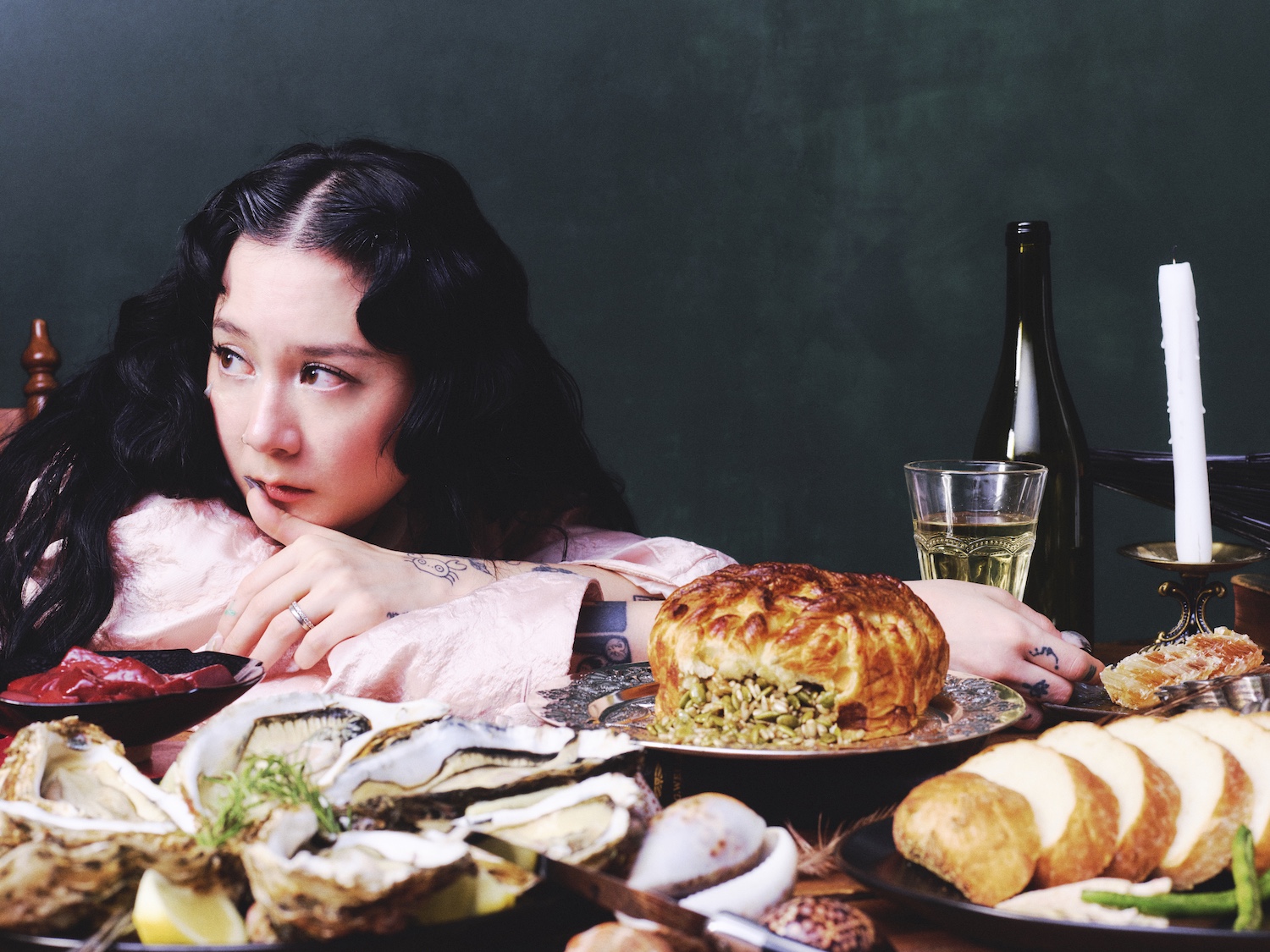
Where do you feel For Melancholy Brunettes (& sad women) sits in the pantheon of Japanese Breakfast’s discography?

Kylie Gurewitz: I definitely think it’s a departure. It feels like Michelle Zauner is having fun exploring the ideas she’s interested in, from Greek mythology to Italian poetry to incel culture. It is an album about sadness, but it doesn’t take sadness too seriously (see the music video for “Orlando in Love.”) It feels like a fitting next album after Jubilee, an examination of the opposite emotion but informed by that joyous perspective.
Adam: I’ve only heard their last two records, but this should be seen as a triumph. They’re carving out a special nook in a genre bristling with talent and promise, which is not that easy. It’s a delicate blend of many styles, all of which seem to come naturally to Japanese Breakfast. It’s not deliberate, like “here’s a song that sounds like Taylor Swift, here’s our hip-hop song, here’s a punky one.” It just comes out as a matter of course. Which is obviously very cool!
Marc: It’s certainly a new direction for Japanese Breakfast, and one that I gladly welcome. This record feels like so much love, pain, and careful thought went into it, from the literary references to the way the tracks themselves are arranged. It’s not really like any record that I’ve heard in the past year. Zauner stuck to her artistic vision rather than trying to fall in line with what’s popular in the music landscape. I hope this record gets the attention it deserves, I think it’s an incredible artistic achievement.
Josh: I’ve also only heard their last two albums. It seems like the ones before that didn’t manage to dent the charts much (not that I’m opposed to checking them out on Spotify!). I’ll say that I liked For Melancholy Brunettes (& sad women) about as much as I liked Jubilee, and it’s nice to see that Japanese Breakfast is able to achieve that often-elusive quality in the music industry: consistency.
— —
:: stream/purchase For Melancholy Brunettes (& sad women) here ::
:: connect with Japanese Breakfast here ::
— —
“Picture Window” – Japanese Breakfast
— — — —

Connect to Japanese Breakfast on
Facebook, 𝕏, TikTok, Instagram
Discover new music on Atwood Magazine
© Pak Bae
For Melancholy Brunettes (& sad women)
an album by Japanese Breakfast

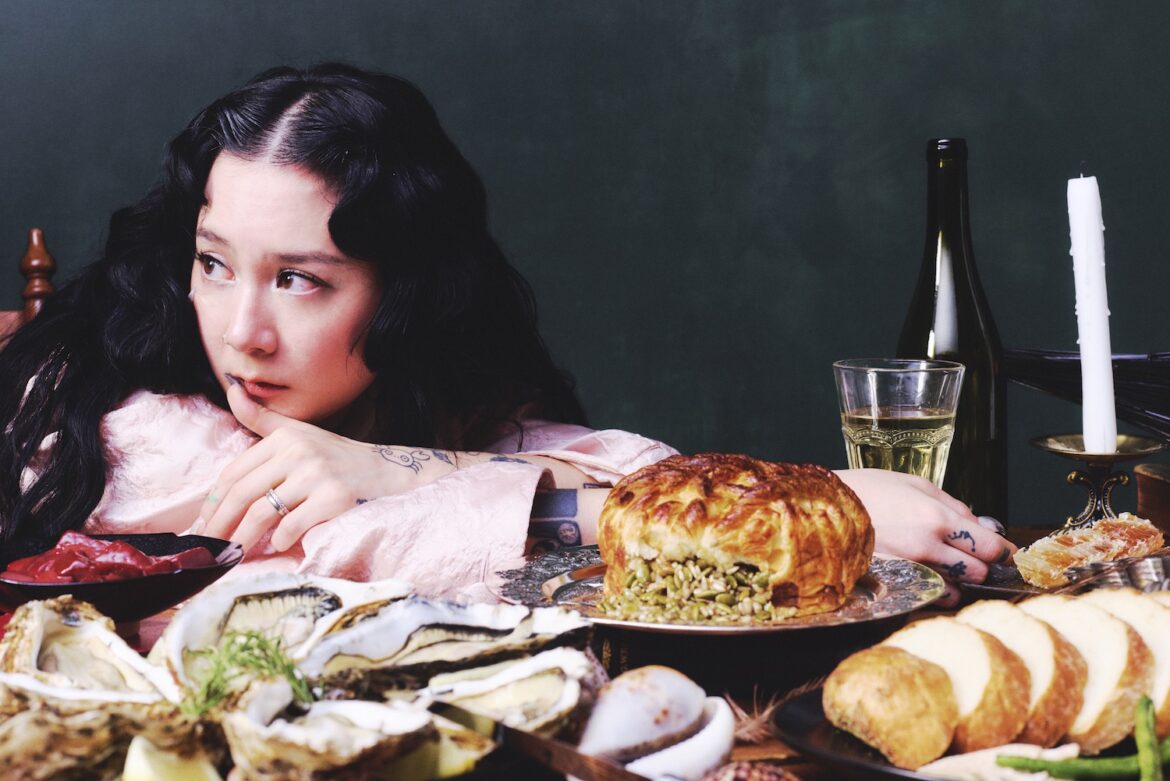
 © Pak Bae
© Pak Bae
